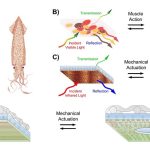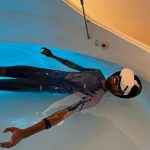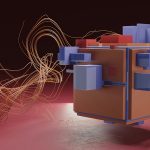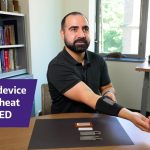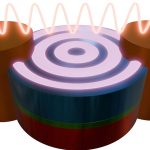Texting while walking puts pedestrians at greater risk, study warns
New research from the University of British Columbia (UBC) has confirmed that distracted pedestrians, such as those texting or using their phones while walking,...
Scientists create squid-inspired fabric for temperature-controlled clothing
Imagine a fabric that can adjust to your body’s temperature—keeping you warm when it’s cold and cooling you down when you’re hot.
Inspired by the...
Scientists use virtual reality to help people overcome fear of water
Researchers at Monash University have developed a new system using virtual reality (VR) and flotation tanks to help people reduce their fear of water,...
Do NFTs create value in games? A closer look at three key perspectives
The introduction of blockchain technology into video games, especially through Non-Fungible Tokens (NFTs), has reshaped how in-game economies function.
NFTs allow players to own unique...
Meta has launched the world’s ‘most advanced’ glasses. Will they replace smartphones
Humans are increasingly engaging with wearable technology as it becomes more adaptable and interactive.
One of the most intimate ways gaining acceptance is through augmented...
Scientists create new model to improve energy storage in supercapacitors
Researchers have developed a new model that helps explain how electric double layers (EDLs) store energy in supercapacitors, paving the way for more efficient...
New OLED technology could revolutionize night vision glasses
Scientists have developed a new type of OLED (organic light-emitting diode) that may replace bulky night vision goggles with lightweight glasses.
These glasses could make...
New stretchy wearable device uses body heat to power electronics
Researchers have created a stretchable, wearable device that can power small electronics, like an LED light, using just the heat from your body.
This breakthrough...
How magnets could make our devices smaller and more efficient
Scientists from the University of Vienna, the Max Planck Institute for Intelligent Systems in Stuttgart, and the Helmholtz Centers in Berlin and Dresden have...
Dual-sided chip could be a game-changer for electronics and lighting
Researchers at Cornell University, in collaboration with the Polish Academy of Sciences, have developed a groundbreaking semiconductor chip that can perform both electronic and...


